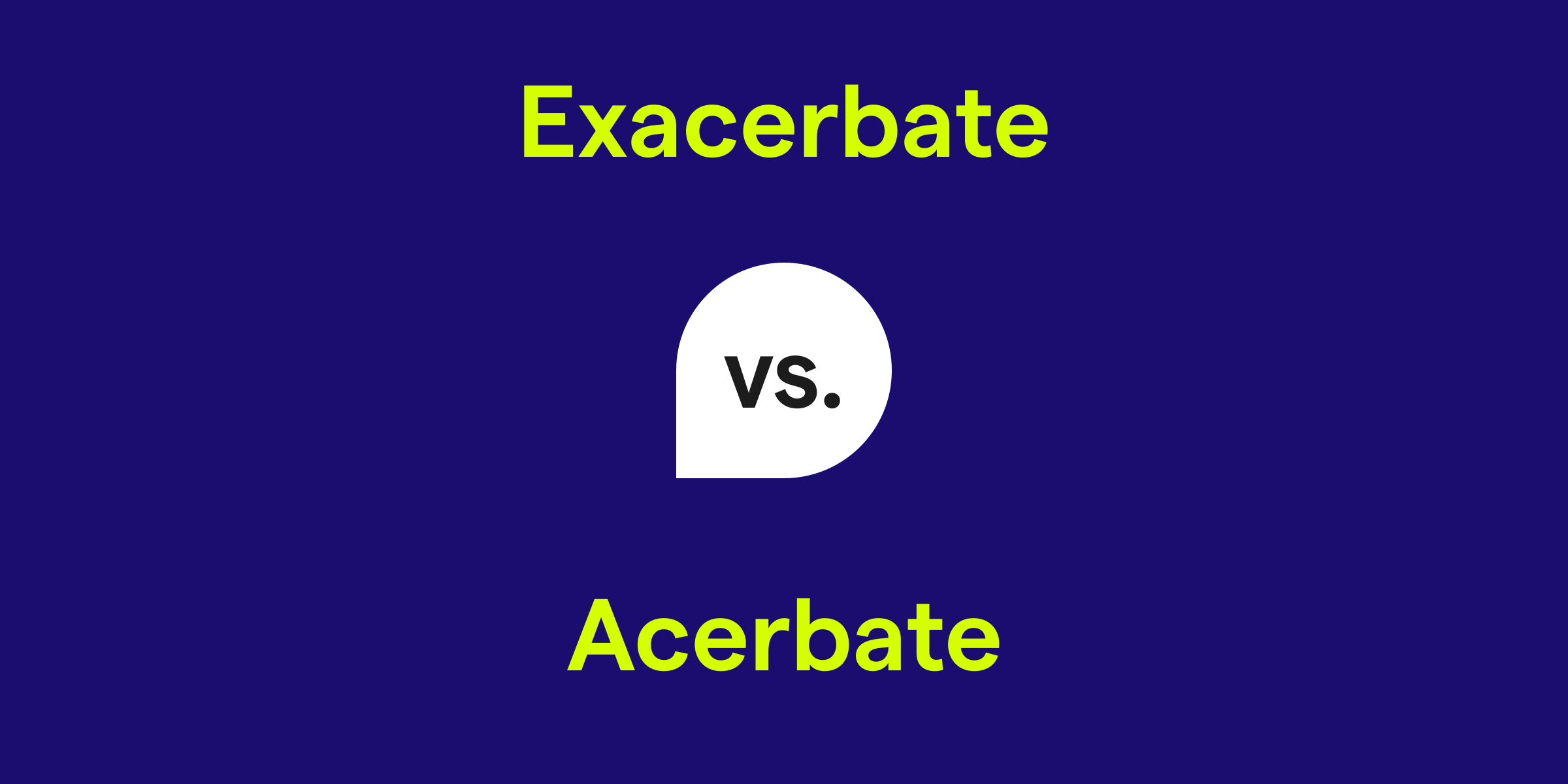Exacerbate vs. Acerbate: What's the Difference?
Exacerbate and acerbate are often confused due to their similar spelling and sound, but they have distinct meanings and uses. Exacerbate is a verb that means to make a problem, a bad situation, or negative feelings worse. Acerbate is far less common and is used to describe something having a sour or bitter taste, or to indicate that one's mood or manner is bitter or sharp.

How do you use the word exacerbate in a sentence?
The word exacerbate is primarily used when discussing situations that have deteriorated or intensified in severity. It is often employed in medical, social, and environmental contexts where there is an increase in the negative impact or worsening of conditions. It is a useful term for precisely communicating the escalation of problems.
Examples of exacerbate in a sentence
- The lack of effective communication between team members exacerbated the issues within the project.
- Ignoring the environmental regulations will only serve to exacerbate the pollution problem.
- The high winds exacerbated the spread of the wildfire, making it harder for firefighters to contain.
How do you use the word acerbate in a sentence?
Acerbate is significantly less common than exacerbate and is unlikely to appear in everyday language. When used, it refers to expressing a bitter or sharp attitude, or to describe a literal bitterness of taste. It can be appropriate in discussions about culinary contexts or to convey a person's sharp mood.
Examples of acerbate in a sentence
- The unripe berries had an acerbate flavor that made us pucker.
- His acerbate response to the feedback revealed his current mood.
- The critique was acerbate and stinging, leaving no doubt about the critic's negative impression.
Exacerbate and acerbate definition, parts of speech, and pronunciation
Exacerbate definition:
Exacerbate is a verb that means to increase the severity, bitterness, or violence of (disease, ill feeling, etc.); to aggravate.
Exacerbate parts of speech:
Exacerbate pronunciation:
Exacerbate is pronounced as /ɪɡˈzæsərˌbeɪt/.
Acerbate definition:
Acerbate is a less commonly used verb that means to make sour or bitter, to irritate or embitter.
Acerbate parts of speech:
Acerbate pronunciation:
Acerbate is pronounced as /ˈasərˌbeɪt/.
Exacerbate is a verb that means to increase the severity, bitterness, or violence of (disease, ill feeling, etc.); to aggravate.
Exacerbate parts of speech:
- As a verb: The constant noise from the construction site exacerbated her headache.
Exacerbate pronunciation:
Exacerbate is pronounced as /ɪɡˈzæsərˌbeɪt/.
Acerbate definition:
Acerbate is a less commonly used verb that means to make sour or bitter, to irritate or embitter.
Acerbate parts of speech:
- As an adjective (acerbic): His acerbate comments during the debate did not win him any favors.
Acerbate pronunciation:
Acerbate is pronounced as /ˈasərˌbeɪt/.
Exacerbate vs. acerbate in a nutshell
While both exacerbate and acerbate are verbs, they are used in very different contexts. Exacerbate is common and refers to the act of making situations worse, especially those that are already negative or problematic. Acerbate, on the other hand, describes a sharpness of taste or manner and is far less common in everyday use. Remembering the context and frequency in which these words are used will help determine the appropriate choice for any situation.
Get AI Writing Assistance Wherever You Type
Make sure your vocabulary is on point and every punctuation mark is in the right place, no matter where you’re working. Grammarly works across more than 1 million websites and apps so you can improve your writing without copying, pasting, or breaking focus.

More Commonly Confused Words
Interest piqued? Pore (not pour) over other commonly confused words to help your writing reach peak (not peek) performance.